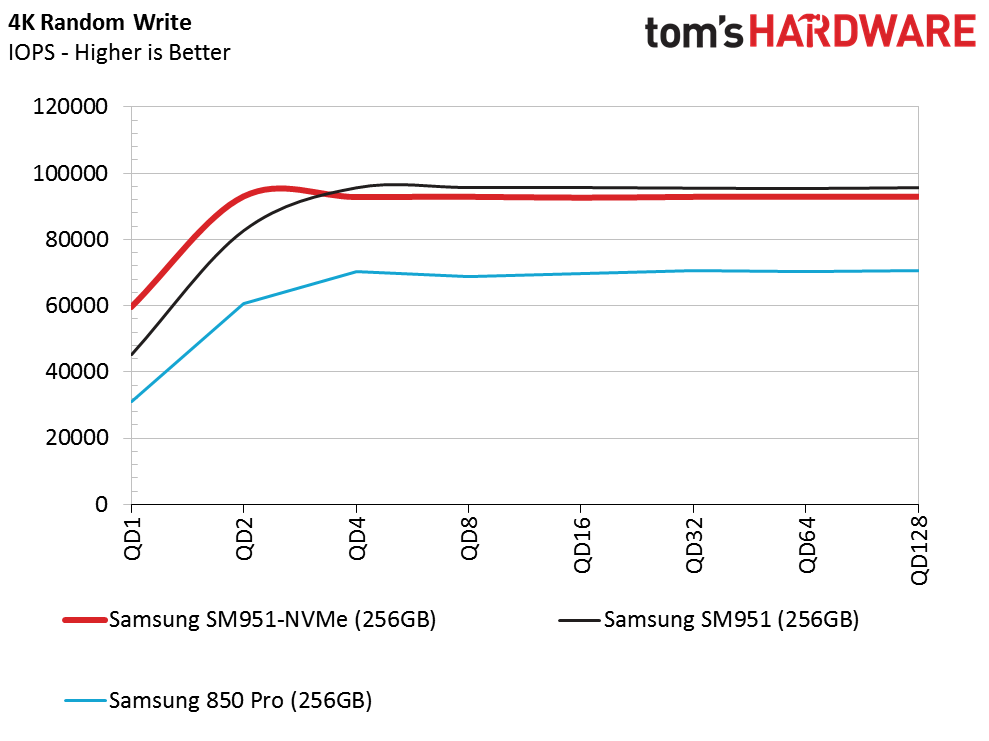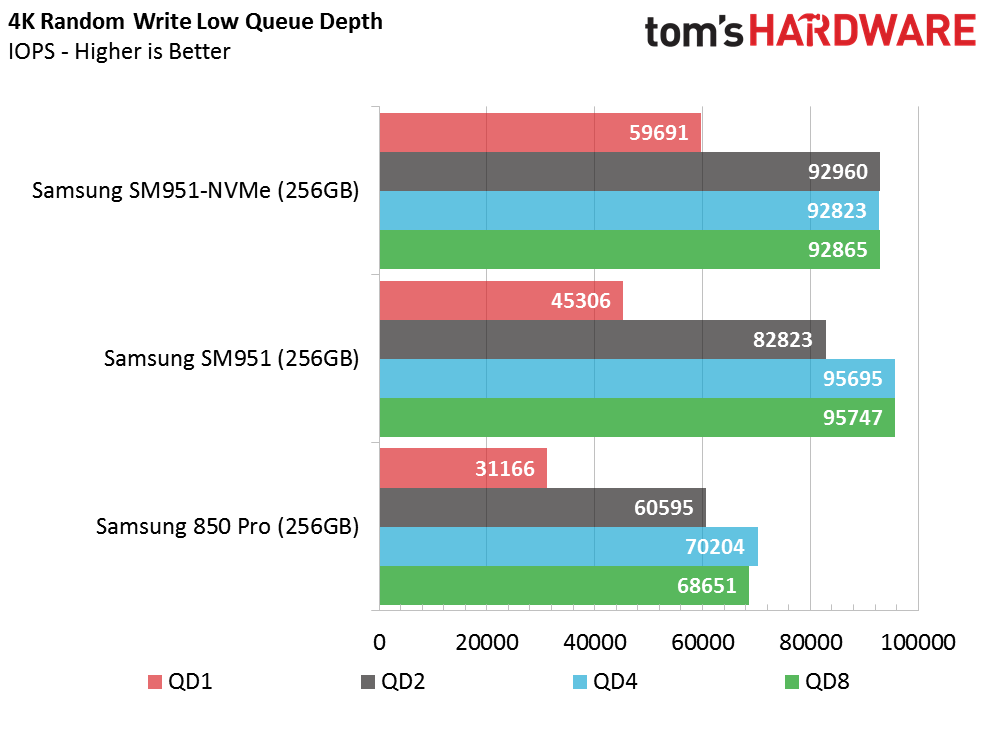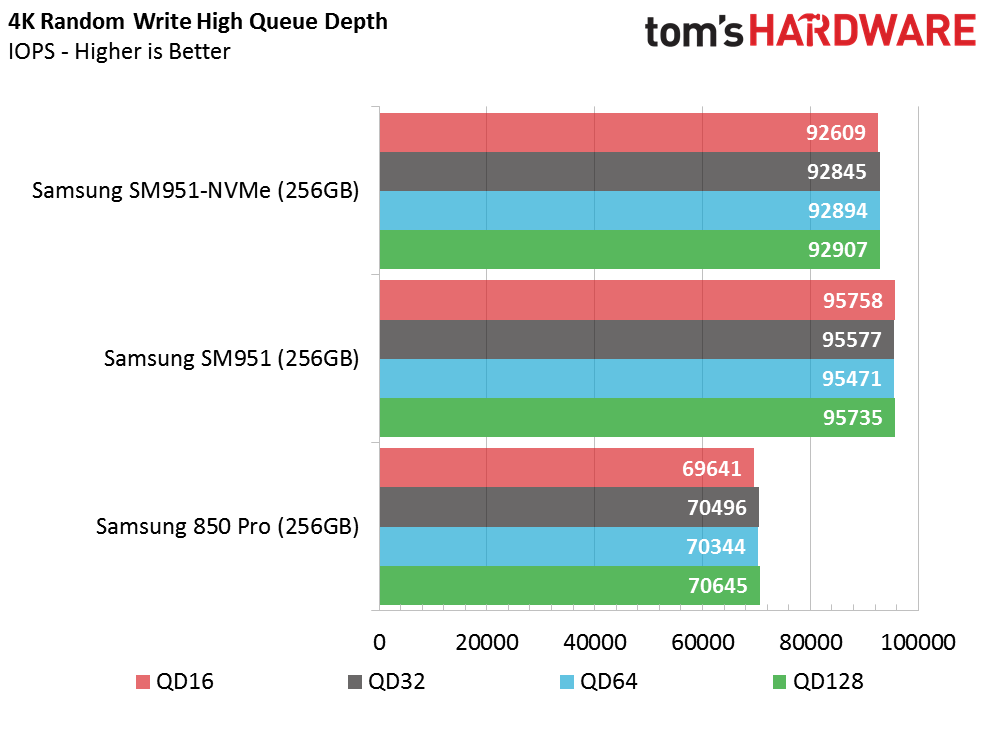Samsung SM951-NVMe Versus AHCI Versus SATA 850 Pro
Why you can trust Tom's Hardware
Random Write



Our SSD test procedure includes a limited form of preconditioning. The drives are not taken down to true steady state, which is something we do for our enterprise SSD reviews on Tom's IT Pro. But the tests are not performed on drives fresh out of the box, either.
Samsung claims 90,000 random write IOPS on both SM951s, and we achieved that mark fairly easily. Fresh out of the box, the number rises significantly, too.
According to Samsung, the 256GB 850 Pro can reach up to 100,000 random write IOPS. That number is realistic, though not after our preconditioning process, where garbage collection and wear-leveling algorithms come into play. Every flash controller company handles these activities differently. Later in this review, we'll detail the results of how Samsung cleans house in the background.
Get Tom's Hardware's best news and in-depth reviews, straight to your inbox.

Chris Ramseyer was a senior contributing editor for Tom's Hardware. He tested and reviewed consumer storage.
-
Amdlova hpv-2560 is rated 1.9A and the another one VPV-2560 is 2.7A Maybe you guys need test the power consumption.Reply -
atheus I find the preamble about comparing these M.2 drives to regular SATA drives a little odd. When SSD's first came out, of course they were compared to HDD's because that was precisely the question of the moment — how much more performance can one expect from the more expensive SSD's. With this new generation of SSD's, it's only natural to want to see them compared to the old, cheaper stuff. How else are we going to evaluate whether it's worth it to upgrade?Reply
If it only resulted in an extra 10% on a real-world test, then it wouldn't make any sense to spend double or more on a NVMe drive. With these solid numbers, though, the massive performance leap will be well worth the cost for those who can afford it. -
TechyInAZ Looks great! NVMe is defiantly the ideal solution for users that need high speed/responsive storage.Reply
I wish you guys would of compared this NVMe SSD to the Intel NVMe SSD that just came out. -
CRamseyer The Intel SSD 750 and the Samsung SM951-NVMe will show up side by side soon in another review.Reply -
CRamseyer Test systems: http://www.tomshardware.com/reviews/how-we-test-storage,4058.htmlReply
All three drives were tested in the PCIe test system. They are the only systems setup for testing queue depths beyond 32. -
dwnelson I'm sad the real world chart is misleading. If you show seconds instead of MB/s you'd see it doesn't justify the cost. Sad.Reply -
BoredErica ReplyThe Intel SSD 750 and the Samsung SM951-NVMe will show up side by side soon in another review.
That is a natural comparison and I look forward to reading it.